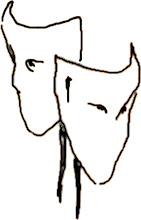Yes, that’s a Beyonce reference. Yes, it’s going cost me a little credibility with my Idle Muse colleagues – and no: I couldn’t resist.
A previous post of mine dealt with the ideal of Victorian manhood, which the men in Holmes’ time each had to contend with. This one will take a look at part of the landscape that was facing women.
According to the United Kingdom Census of 1851,* the population of Victorian Britain contained 4% more women than men. Since the same census counted a population of about 18 million, this is a difference of approximately 750,000 individuals. These "superfluous women" would have no chance of ever marrying, due to simple mathematics.
For a very exceptional few, like Doyle’s Irene Adler, the gift of artistic talent provided a means to circumvent these restrictions, finding their own independence as divas and other performers. For others, the inability to hold significant employment or obtain higher education forced them into more desperate professions…
To an actor considering the role of Madge Larrabee and her interactions with the other characters of the play, these are circumstances which must be considered. What choices are left a woman with no resources and nothing to rely on but the schemes of a fallen brother? How must she respond when those schemes attract the notice of one Dr. Moriarty? Finally, what edge will her conversations with Irene Adler carry, knowing that she is speaking to a woman who has sidestepped all the difficult choices and all the moral compromises she herself has been forced to make?
*Ideas and figures in this paragraph summarized from the Wikipedia article “Victorian Era”: http://en.wikipedia.org/wiki/Victorian_era




